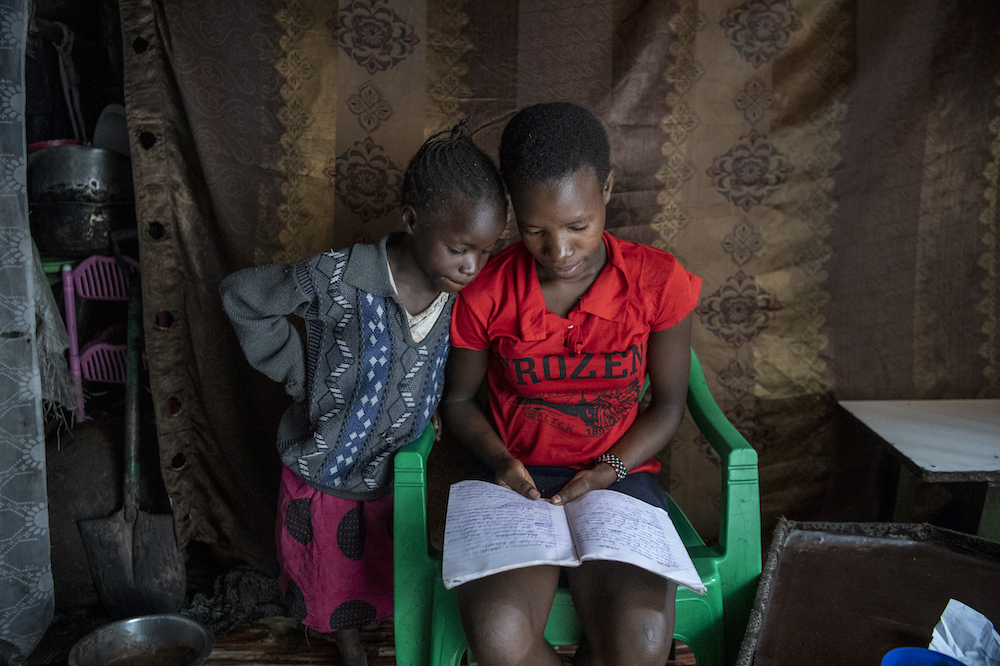
China’s second children try to make up for lost years of education
Right to education
The one-child policy was scrapped by the Chinese government last year - but many second children missed out on school completely because they didn't exist in the national database.
Living in Beijing for 23 years, Li Xue has never attended school, not even for a day.
China provides a free, nine-year education to every child but Li was not included. For the past 23 years, she has had no access to any form of social welfare. She has not been allowed to get married, find a job or open a bank account.
For Li was the second child born to her parents and, due to the nation’s one-child policy that ran from around 1978 until 2015 to curtail population growth, she didn’t exist in the Chinese government’s database.
Li said her parents tried to register her at the police station when she was born but staff there refused and demanded a letter of approval from the local family planning commission.
With no letter approving her birth, Li’s parents were faced with the prospect of paying a hefty fine for breaking the one-child policy to register her but could not afford to do so.
Since then it has been a two-decade battle with officials until China scrapped its one-child policy last year and Li finally received an official paper to prove her existence.
Ending the one-child policy has left people like Li scrambling to make up for lost years, resentful as they fear this recognition may have come too late and unsure what the government is going to do to help them make up for those years.
Li missed out on an education and struggled to learn everything by herself, using library books borrowed under her elder sister’s name with her family unable to afford a tutor.
“My mother was dismissed from her job because she gave birth to me,” Li told the Thomson Reuters Foundation in an interview at her home in Beijing, a shabby house without a private toilet and with a makeshift shower.
“All four of us had to live off my father’s meagre salary.”
Li’s mother, Bai Xiuling, a former factory worker, said her daughter used to cry when other children set off for school.
“She wanted to study at school, but she can’t. My child has already missed the nine-year compulsory education. No money can buy her time back,” she said.
According to China’s latest population census, conducted in 2010, there were 13 million unregistered citizens like Li, almost 1% of the country’s total population.
I thought about it over and over again but still I dared not to let the government know that I have a child born without permission Chunyan Liu on having a child outside marriage
“Most of them are children born outside the country’s one-child policy,” said Jiantang Ma, the then head of China’s National Bureau of Statistics who conducted the census.
A 2015 study by the Academy of Macroeconomic Research at the National Development and Reform Commission found nearly half of China’s unregistered citizens were illiterate or lacked formal education.
For during the years of the one-child policy, second children would not be registered in the household system unless a hefty fine was paid with some exceptions to this rule.
Births out of marriage are also considered a violation of China’s strict family planning rules and unmarried couples had to pay a fine to register their newborn.
China is one of few countries which has a household registration system, known as hukou in Chinese, that contains the births, marriages and other information on citizens.
A person without a hukou record in China is denied public services, such as education and health care, and is barred from getting married, finding a job or even opening a bank account.
Wenzhuang Yang, an official at China’s National Health and Family Planning Commission, denied China’s one child policy – and punishments associated with it – have played a role in blocking millions of citizens from being registered.
At a press conference earlier this year, Yang said his department had tried its best to remove hurdles set by local authorities in household registration and many unregistered citizens have now been included in the hukou system.
Yang was not available to be reached for further comments despite repeated phone calls.
Unmarried mother Chunyan Liu, a freelance English teacher, said she was unable to pay the fine so she kept her daughter’s birth secret for seven years until April this year when she finally registered her child.
“The fine in Beijing was really high. I thought about it over and over again, but still I dared not to let the government know that I have a child born without permission,” she told the Thomson Reuters Foundation.
Due to a lack of hukou, Liu’s daughter had no access to government-subsidised healthcare. She was unable to buy train tickets or travel abroad.
“When other parents took their kids to the Hong Kong Disneyland, we couldn’t even think of it,” Liu said.
“My daughter is now seven years old and she has never set her foot outside Beijing,” she said, adding that she was still worried that government official might ask her to pay the fine.
Despite all the concerns, however, Liu calls herself “lucky.” Last year, she tried but failed to find a place for her daughter to study, due to a lack of hukou.
“Now, my daughter has everything she needs to go to public school,” Liu said.
But others are not so lucky with researchers from the Academy of Macroeconomic Research at the National Development and Reform Commission saying more than half of China’s unregistered citizens are above 18 years old.
Many of these adults not only lost out on schooling but also struggled to find a job as they couldn’t provide hukou record and other legal documents often needed for hiring
More news

